Experience How Kanban Simplifies & Improves Multi-Project Management
Join us for a 4 hour long, online simulation where we visualise, manage and optimise project management workflows across multiple teams
VISUALISE PROJECT WORK
gAIN FOCUS
iMPROVE eXPERIMENTALLY
What Are the Learning Objectives?
Who doesn't know it? Projects take forever (if they get done at all) and everyone is constantly overloaded. Fortunately there are many possible solutions ... but trying any of them often comes with a lot of risk and you need to find time to investigate. Time you don't have because the day-to-day business is just so demanding ...
Using Kanban for Project and Portfolio Management is one of these promising solutions, but instead of expecting you to read up on a lot of theory first, we invite you to experience it by participating in one of our multi-project simulations.
Participants will not only experience what such a Kanban-based work system would look like in practice, how easy it would be to get started and how the system could be improved in an evolutionary way, but also take home many ideas about how the following results can be achieved:
Transparency and Collaboration
Quicker and More Effective Communication
Teams That Are Not Overloaded
Clear Priorities and Direction
Better Predictability
Faster Delivery of Customer Value
Who Should Participate?
The simulation is perfect for anyone who has to plan and execute projects, e.g. for
executives, PMO directors and members, project managers, product owners, senior process improvement officers/consultants, organisational change agents and all other PM-related roles. There are two main use cases here:
Individual Leaders
Ideal for individuals who want to learn how Kanban can help with project coordination
The PM Office
Ideal for in-house groups who want to experiment in a safe environment with using Kanban for multi-project management.
Why You Should Attend
Kanban is a powerful tool to complete work faster and more effectively, but only if you know how. There are many books, videos and courses to learn from, but what if you're not that far along and want to find out for yourself what it's all about?
That's exactly what this Kanban simulation is for. Using a fictitious scenario, participants playfully learn about Kanban and especially how it can help to simplify and improve multi-project environments, step-by-step.
What makes this simulation truly unique, however, is that it tries to showcase an actual project management system and, instead of hiding the complexity of the many processes inherent in such a system, it uses state of the art automation to bring everything to life.
This leaves more time for the participants to observe the effects of different policies on the flow of work, which naturally leads to many "what-if" questions and insightful experimentation.
This simulation and its high-level scenario was inspired by a multi-project simulation created by Ivaylo Gueorguiev and Violeta Kyurdyan from ESI CEE with contributions by Teodora Bozheva, Head of Professional Services at Businessmap.
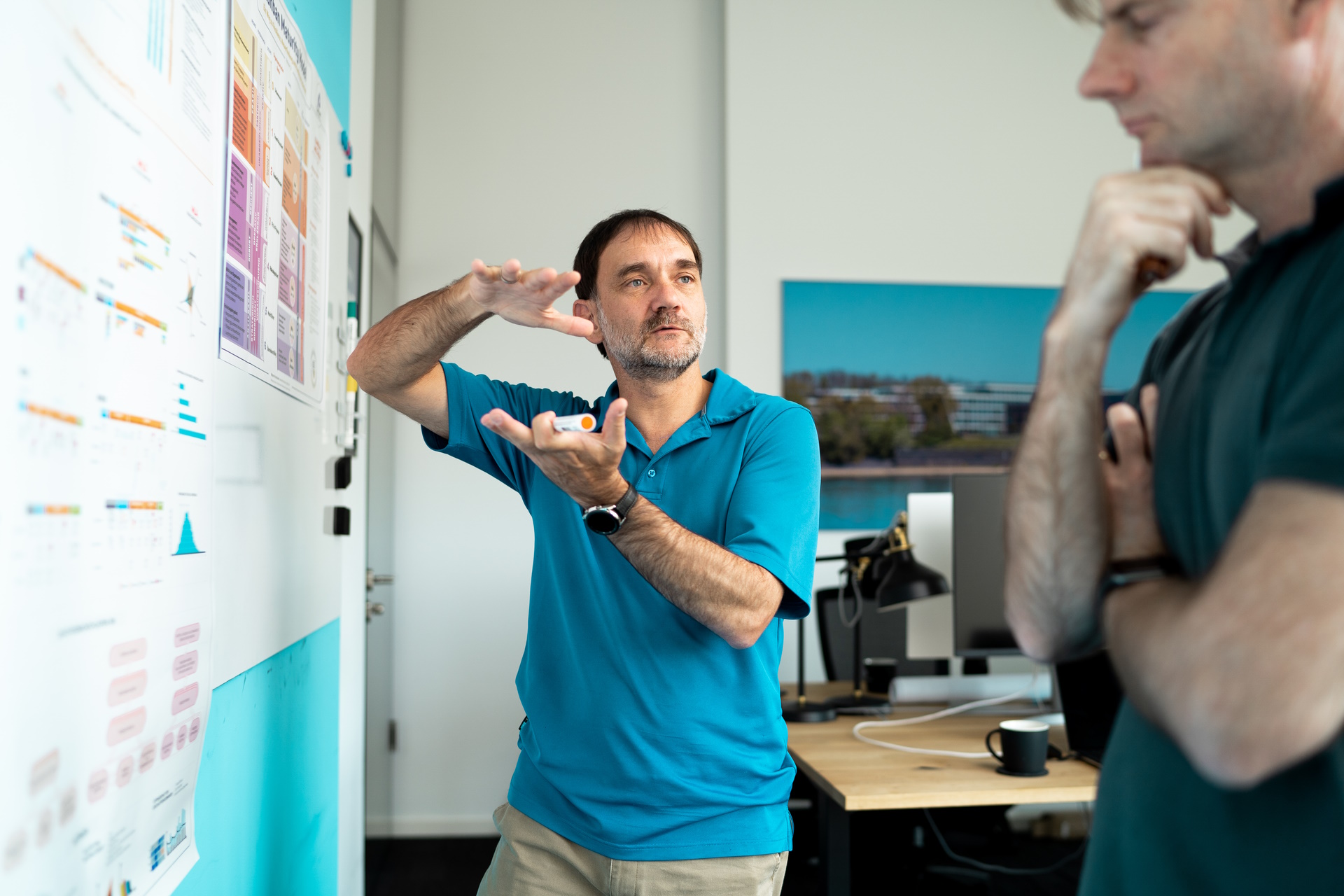
Getting to Know Multi-Project Kanban in 3 Steps

Choose Your Timeslot
As a rule, we run simulations every 2 weeks. Avoid disappointment and reserve a suitable timeslot right away.

Organise Payment
Voucher for a free event? Then apply it straight away and you're done. Otherwise, either pay when you book or wait until we send you an invoice.

Show Up and Have Fun
One day before the simulation, we'll check in with a few preparatory steps. Then there's nothing else to do but show up and play along!
How Does the Simulation Work?
This simulation allows for extensive and realistic experimental learning in a group of 6 - 13 online participants. Participants are part of the operational leadership team in the business and either wear a program manager, project manager, customer representative or a team-lead hat.
The work itself is visualised across 1 Program Management board and 3 Team boards and every project is broken down into a number of deliverables, which in turn are broken down into work items by the teams, which then also have to complete the work. The goal is to complete as many projects as possible in the available time.
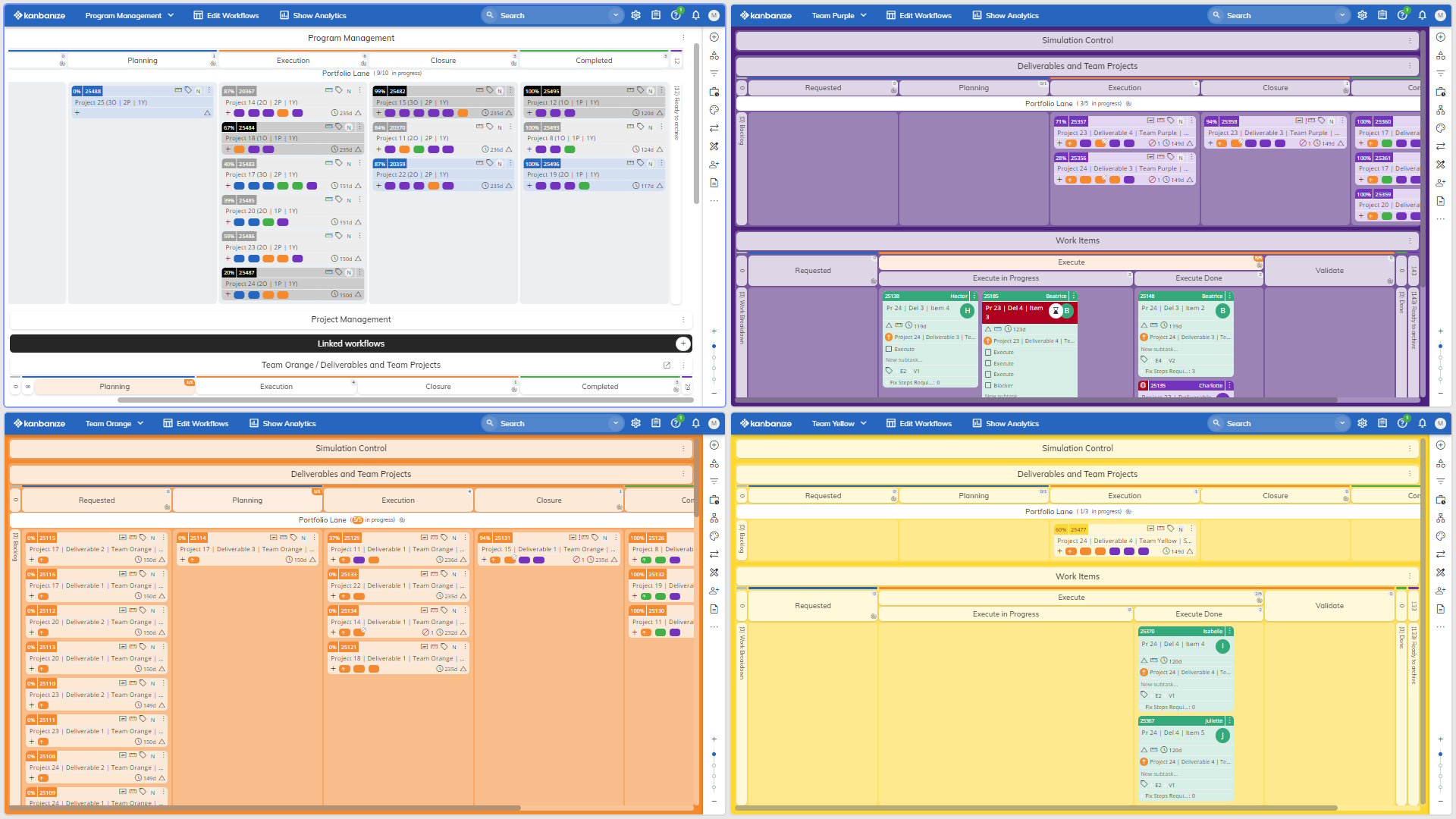
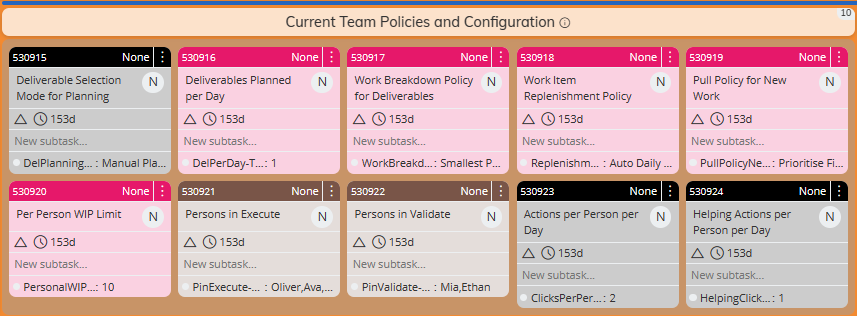
A typical simulation starts with the project managers trying to effectively utilise the capacity of the teams in order to complete their (own) projects as quickly as possible.
The teams have a lot of work to do, but since they follow some simple policies, most of their work in the simulation is automated and participants just see work flow across the Kanban boards as it is being completed.
But problems quickly appear and it doesn't take long before most teams drown in work. What a mess, just like in real life ...
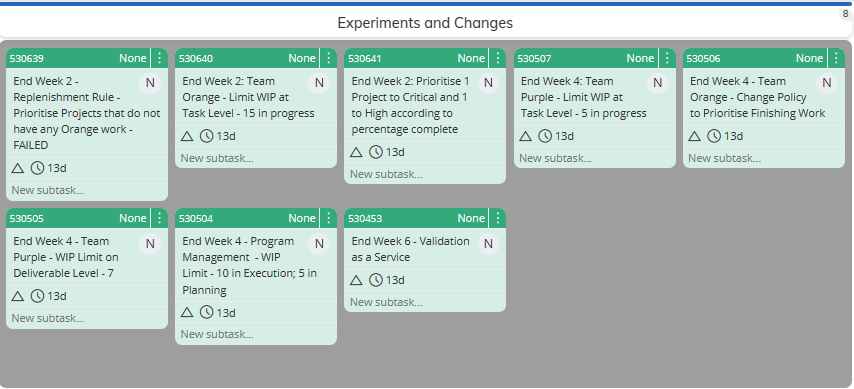
It is now up to the participants to discover solutions to their challenges.
To do this, there will be lots of opportunities to reflect on what is happening, why it is happening and how one could improve the situation, little by little. Not all experiments work out, however ...
Throughout the simulation participants practice using flow-metrics to make decisions related to the execution of multiple projects.
Four hours for the base simulation is unfortunately not enough to properly delve into the valuable metrics that are collecting in the background, which is why we often run private simulations over a few sessions for internal teams.
This is made possible by the unique design which allows us to save the state of the simulation and resume it at a later stage when the team is ready to go to the next level.
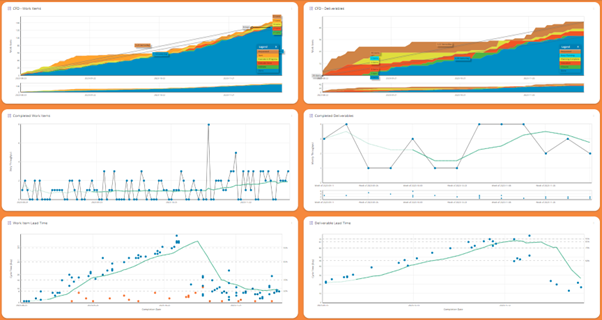

Participants run the simulation in a fully functional Businessmap (formerly Kanbanize) instance. Although the aim of the simulation is not to learn about Businessmap, one can still take home quite a bit about the tool.
In a final discussion, participants share what they have learned and discuss how Kanban can simplify and improve multi-project management.
At this point, participants are usually extremely curious to get to know Kanban practices better and to implement them in their own environment. An ideal time to think about building a first multi-project Kanban system during a Kanban Bootcamp.
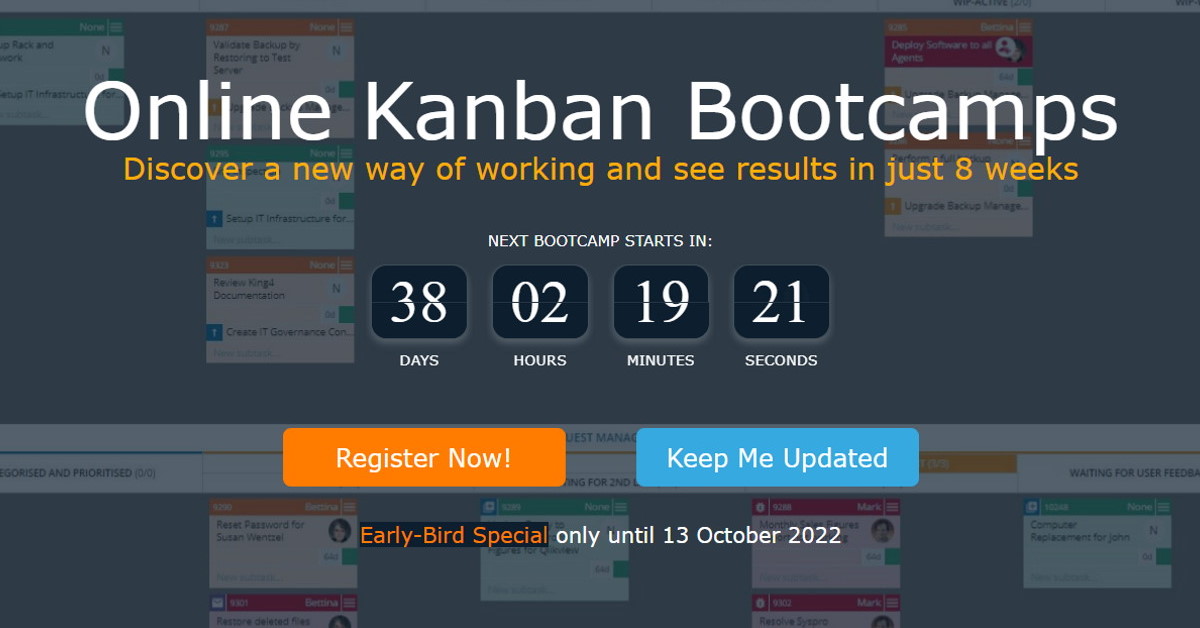
Book Now
For individuals, it is very easy to participate: select the time zone in the form below, find a suitable date and enter a coupon code (if available) or choose whether to pay now or later.
If you can speak German and there is no suitable date for a simulation in English, you can always decide to join us when we run the simulation in German.
In the event that no (suitable) simulation time slots are available, please reach out to us (for instance, through the chat option or through the contact us page) so that we can manually find an option for you.
If you rather want to book a private, customised simulation for your team(s), just post a short message with a few details about your expectations in the website Chat so that we can discuss the options and find a suitable date.


